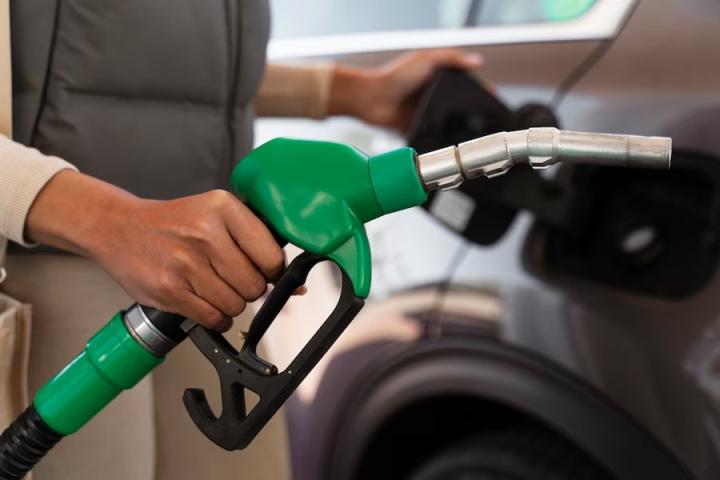A recent report indicates a significant drop in the landing cost of petrol in Nigeria, with figures falling to N971 per litre. This decrease in cost is largely attributed to shifts in the global oil market and recent adjustments in exchange rates. However, the implications for consumers remain uncertain, as fuel pricing within Nigeria continues to be influenced by a range of complex factors.
Key Factors Behind the Decline in Petrol Landing Cost
The drop in the landing cost is influenced by several external and internal factors. On the global front, oil prices have seen fluctuations due to shifting demand dynamics, OPEC’s production decisions, and geopolitical events. Additionally, exchange rate adjustments made by the Central Bank of Nigeria (CBN) have also played a role in determining the local landing cost of fuel imports. The landing cost includes freight, insurance, and other logistics expenses required to bring fuel into Nigeria and distribute it within the local market.
According to industry analysts, changes in crude oil prices directly impact the cost of importing refined petrol. As crude prices stabilize or dip, the landing cost for petrol also becomes more favorable, creating a window for potential reductions in retail fuel prices. Nonetheless, these changes do not always result in immediate adjustments for consumers due to Nigeria’s complex downstream sector and the need to maintain a steady fuel supply across the country.

The Role of Exchange Rates and Import Dynamics
The exchange rate between the naira and the U.S. dollar is another critical component in determining petrol landing costs. In recent months, the naira has experienced depreciation, which has placed additional pressure on the landing cost of fuel imports. However, efforts by the CBN to manage foreign exchange rates, combined with recent favorable oil prices, have created a temporary reduction in landing costs.
Nigeria relies heavily on imported refined petroleum products to meet its energy needs, as domestic refining capacity has been insufficient to cater to the nation’s demand. This reliance on imports means that any fluctuations in exchange rates or global oil prices can have an immediate impact on local fuel costs. The fluctuating nature of these factors often contributes to the volatility in petrol pricing, leaving consumers and businesses to deal with unpredictable costs.
### Consumer Impact: Will Prices at the Pump Drop?
Despite the drop in landing costs, it remains unclear whether Nigerians will see relief at the pumps. In many cases, changes in the landing cost do not translate directly to retail price reductions. Petrol pricing in Nigeria is regulated, and adjustments to pump prices depend on decisions by the Nigerian National Petroleum Company (NNPC) Limited and other regulatory bodies. They consider a range of factors, including fuel subsidies, the government’s fiscal stance, and local supply dynamics.
Currently, Nigeria is experiencing a high inflation rate, with fuel prices being a major contributing factor. Any decision to lower petrol prices would likely be welcomed by citizens and businesses alike, as reduced fuel costs could ease inflationary pressures. However, with the government’s ongoing efforts to reform the oil and gas sector, including potential subsidy removal, any adjustments to pump prices will likely be subject to careful analysis.
Looking Ahead: The Path for Nigeria’s Fuel Pricing
In recent years, the Nigerian government has considered moving toward full deregulation of the downstream sector. Such a shift would mean that local fuel prices would be determined entirely by market forces, making them more responsive to global oil price changes and exchange rate dynamics. While deregulation could lead to greater price stability in the long term, it also poses immediate challenges, as it could result in higher fuel prices if global oil prices rise.
The recent drop in the landing cost provides an opportunity for regulatory bodies and policymakers to evaluate the potential benefits of passing on savings to consumers. Still, this must be balanced against the need to ensure sustainable supply chains and financial stability within the oil sector. NNPC and other stakeholders are likely to monitor global oil market trends closely, considering both short-term consumer relief and long-term energy security.
Conclusion
The reduction of petrol landing cost to N971 per litre reflects favorable shifts in the global oil market and foreign exchange rates, but the impact on retail fuel prices remains uncertain. While consumers may hope for a drop in petrol prices at the pump, the complexities of Nigeria’s downstream sector, potential subsidy adjustments, and ongoing economic reforms mean that any decision will require careful consideration by authorities.
As Nigeria moves towards reforms within the oil and gas industry, balancing the needs of consumers, industry stakeholders, and economic stability will be critical. For now, while the reduction in landing costs is promising, Nigerians will have to wait and see if these savings will translate into real benefits at the fuel stations.
Support InfoStride News' Credible Journalism: Only credible journalism can guarantee a fair, accountable and transparent society, including democracy and government. It involves a lot of efforts and money. We need your support. Click here to Donate
